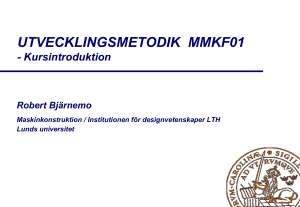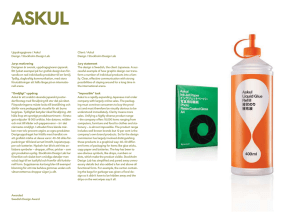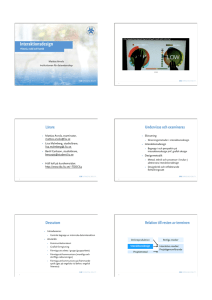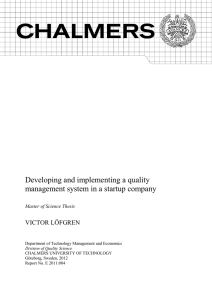Entreprenöriell programmering
advertisement
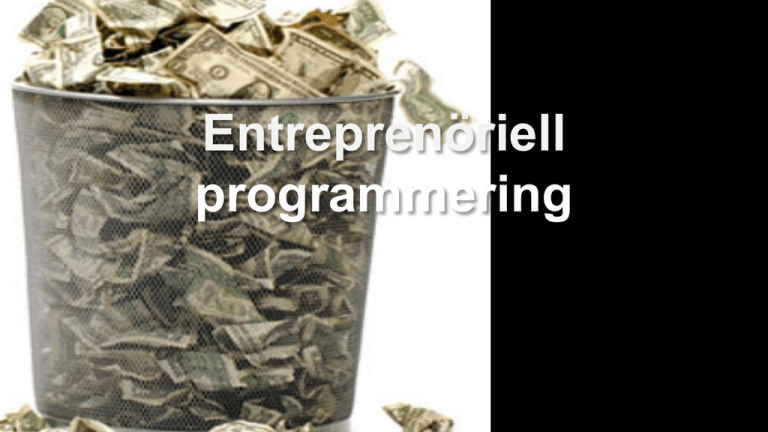
Entreprenöriell programmering Android programming Marknadsföring och försäljnings påverkan på produktuevckling - introkunskap Literature studies – om affärsmodeller Presentation av system – kärnvärden Eget mjukvaruprojekt Gamla sanningar Om jag bara hade en bra ide! Nya sanningar särskilt i mjukvaruområdet 60 % av marknadsföring från social nätverk och viral spridning Enbart 12 % från betald marknadsföring Free game on steam earn 3 times more and have 10 times the amount of players - Gabe Newell Programmerares affärs- och uppstartsmetodik Tekniska affärsutveckling Kodning, distribution och teknikfokus kring affärer Bygg och distribution av system för lärande och validering av köpbeteenden Tekniska mätsystem för insamling av användardata Mjukvaruutvecklingsmetodik I’ Unika produkter syns – produktskapande och marknadsföring hör ihop Sociala och Virala produktegenskaper presales Lean Startup Pivot Zoom-in pivot. In this case, what previously was considered a single feature in a product becomes the whole product. This highlights the value of “focus” and “minimum viable product” (MVP), delivered quickly and efficiently. Zoom-out pivot. In the reverse situation, sometimes a single feature is insufficient to support a customer set. In this type of pivot, what was considered the whole product becomes a single feature of a much larger product. Customer segment pivot. Your product may attract real customers, but not the ones in the original vision. In other words, it solves a real problem, but needs to be positioned for a more appreciative segment, and optimized for that segment. Customer need pivot. Early customer feedback indicates that the problem solved is not very important, or money isn’t available to buy. This requires repositioning, or a completely new product, to find a problem worth solving. Value capture pivot. This refers to the monetization or revenue model. Changes to the way a startup captures value can have far-reaching consequences for business, product, and marketing strategies. Engine of growth pivot. Most startups these days use one of three primary growth engines: the viral, sticky, and paid growth models. Picking the right model can dramatically affect the speed and profitability of growth. Free 2 Play Freemium, freestyle FREEDOM HURTS? the Bertrand paradox A situation in which two players (firms) reach a state of Nash equilibrium where both firms charge a price equal to marginal cost ("MC"). For Internet distributed software MC = $0. The product become a store The product become the
